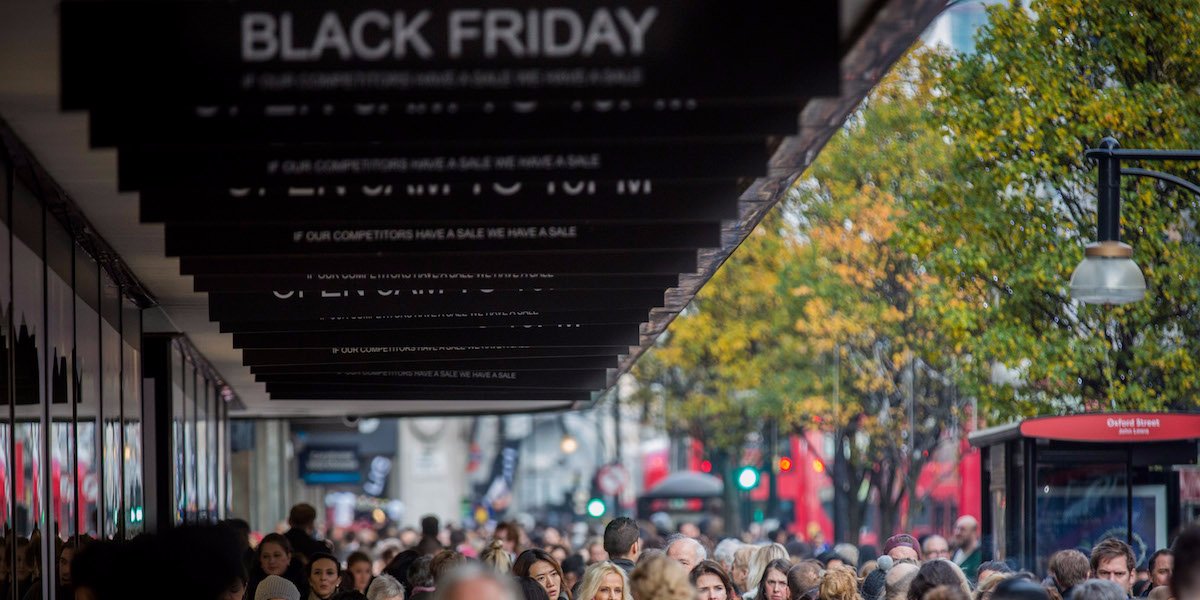- UK retail sales dive 1.5% in December as consumers slow spending following Black Friday bonanza.
- “Consumers continue to move Christmas purchases earlier with higher spending in November and lower spending in December than seen in previous years,” Rhian Murphy, a senior ONS statistician said.
- The longer term trend in the retail sector is also worrying, with annual growth of 1.9%, the lowest seen since 2013.
LONDON — UK retail sales plunged in December, as shoppers pulled back from spending after the excesses of Black Friday, data from the Office for National Statistics released on Friday showed.
Overall retail sales fell by 1.5% in the month compared to November, falling even more than the 1% drop forecast prior to the release.
The data may look pretty awful on the surface, it is negatively impacted by the fact that November was an unusually strong month, thanks to the growth of the previously USA-only shopping day known as Black Friday.
Black Friday, celebrated the day after Thanksgiving, sees retailers slash prices on high ticket items like televisions, computers and other tech equipment.
It has grown substantially in popularity in the UK in recent years, with almost all retailers now running some sort of Black Friday sale.
“Consumers continue to move Christmas purchases earlier with higher spending in November and lower spending in December than seen in previous years,” Rhian Murphy, a senior ONS statistician said in a statement.
Monthly figures show a reasonably good picture of the UK retail sector is in a given moment, but longer term figures are needed to analyse industry trends. Unfortunately for British retail, the long term trend isn’t great either.
“Retail sales continued to grow in the last three months of the year partly due to Black Friday deals boosting spending. Consumers continue to move Christmas purchases earlier with higher spending in November and lower spending in December than seen in previous years,” Murphy said.
“However, the longer-term picture is one of slowing growth, with increased prices squeezing people’s spending.”
Murphy’s statement is backed up by the ONS’ data, which shows annual retail sales growth of just 1.9% over the course of 2017, the slowest rate of increase since 2013.
The ONS’ data follows a series of troubling Christmas business updates from major high street retailers, all of which suggest a certain degree of peril for the sector.
Major players Marks and Spencer and House of Fraser both last week reported horrible Christmas periods, while Debenhams’ share price collapsed 20% last week after reporting a Christmas sales slump; Mothercare sales dropped 25% after a 7% drop in Christmas sales; and suit maker Moss Bros cut its profit forecast after “lower footfall than anticipated during December”.
Slowing high street retail sales may be partially down to changes in the way Brits shop, but it is also emblematic of the economic hardships faced by regular citizens in the aftermath of the vote to leave the EU.
Consumers simply have less money to spend as a cocktail of high inflation and sclerotic wage growth puts the pinch on British pockets.














